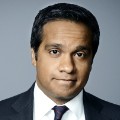Sen. Bernie Sanders' campaign is surging across the country -- but not where he's served for nearly three decades: Capitol ...
ernie Blowback: Sanders' colleagues warn of political fallout and doomed agenda
(CNN)Sen. Bernie Sanders' campaign is surging across the country -- but not where he's served for nearly three decades: Capitol Hill.
Vulnerable House members are growing fearful that the self-described Democratic socialist will cost them their seats if he's the nominee -- and Senate Democrats are bluntly warning that his far-reaching policy ideas have little chance of becoming law.
"South Carolina doesn't want socialism," said Rep. Joe Cunningham, an unaligned freshman Democrat in a formerly Republican Palmetto State district. "That's not who we are."
The growing alarm in Washington comes at a crucial juncture in the race, with Sanders emerging as the frontrunner days before Saturday's pivotal South Carolina primary and before Super Tuesday, when more than a third of all delegates will be up for grabs. Many Democrats on Capitol Hill are worried that Sanders will hold an insurmountable lead after Super Tuesday and are beginning to grapple with the implications of him as a nominee.
Some are now warning that his agenda -- whether it's erasing all student debt or establishing a single-payer health care system while raising taxes -- stands little-to-no chance of succeeding.
"I know you just can't make this all happen," Sen. Robert Menendez, a Democrat of New Jersey, said of Sanders' agenda. "And if you can't even say how you're going to pay for it, then at the end of the day it's ephemeral, it's whimsical."
Menendez's comments were echoed by nearly a dozen of his Senate Democratic colleagues, who suggested he would have to pare back his goals to have any chance of success in the chamber, which will likely be narrowly divided next year no matter which party is in charge.
"There's not votes for that," said Sen. Joe Manchin, a conservative Democrat from West Virginia, referring to Sanders' single-payer health care system.
No congressman or senator in a competitive race has endorsed Sanders. Instead the vulnerable Democratic members have either chosen to support nobody or one of the four more moderate options: former Vice President Joe Biden, former New York city mayor Mike Bloomberg, former South Bend mayor Pete Buttigieg and Minnesota Sen. Amy Klobuchar.
"These are disastrous positions when you're going into working class areas; I'm talking white people, black people, brown people that are struggling to pay for their own health care," said Rep. Tim Ryan, a former presidential candidate who now backs Biden, referring to Sanders' positions. "I think he's articulated the challenges, but the solutions are off the mark for the vast majority of Democrats, I think, in the Midwest.
At Tuesday's debate, a number of candidates aimed their attacks at Sanders, charging that he makes unrealistic, unpopular promises that will ensure not only four more years of President Donald Trump, but also Republican control of Congress.
"If you want to keep the House in Democratic hands, you might want to check with the people who actually turned the House blue -- 40 Democrats who are not running on your platform," said Buttigieg to Sanders. "They are running away from your platform as fast as they possibly can."
Sanders responded that he beats Trump in a number of head-to-head polls -- and that his candidacy would bring out new voters to help down-ticket candidates.
On Wednesday, Sanders' supporters pushed back against Buttigieg's attacks, with Rep. Pramila Jayapal calling them "fear mongering."
"It is the discounting of a movement that Pete Buttigieg would probably love to have behind him but, guess what, it actually supports Senator Sanders," she said.
Democratic leaders so far have insisted that they are not concerned about a potential Sanders' nomination. House Speaker Nancy Pelosi on Wednesday reiterated that House Democrats will back the party's eventual presidential nominee, even if it is the Vermont independent.
"I think whoever our nominee is, we will enthusiastically embrace and we will win the White House, the Senate and the House of Representatives," said Pelosi.
Asked about the impact for House Democrats if Sanders is the party's nominee, Rep. Cheri Bustos, who chairs the House Democrats' campaign arm, repeatedly said "it doesn't matter who the nominee is" and that Democrats will keep the House.
The nonpartisan Cook Political Report says that 18 House Democrats have "toss-up" races, the most competitive designation. In a sign of how divided the presidential field is, a plurality of those members have not endorsed anybody. The rest are split up between Biden, Bloomberg, Buttigieg and Klobuchar. The most vulnerable Democrat in the Senate up for reelection this year, Alabama Sen. Doug Jones, has endorsed Biden.
None have endorsed Sanders or Massachusetts Sen. Elizabeth Warren, who advocates for "big structural change," but has attempted to position herself as the more unifying option.
Part of the pitch for the moderate candidates is that while their goals are more modest, they're possible. They also share the same policy goals and prescriptions as the Democrats who swept into the House in 2018.
Rep. Colin Allred, a Texas Democrat who has endorsed Biden, said that to "improve" the Affordable Care Act, "try to save" the environment, invest in infrastructure projects and "create good paying jobs," Democrats need to nominate a president who will help them in down-ballot races.
"We have to keep in mind which nominee will help us most in those areas that we need to win," said Allred.
"Would I prefer someone at the top of the ticket who shares my values and the values of my district? Yes. And I believe Michael Bloomberg is that person," said Rep. Harley Rouda, a freshman from California.
Rep. Anthony Brindisi of New York recently said he wouldn't support Sanders or Warren, telling the Post-Standard that he didn't think his district wants "a president who supports abolishing private health insurance companies — and I don't either."
And House Foreign Affairs Chairman Eliot Engel said on Wednesday that "certainly it's a concern" having a Democratic socialist atop the ticket.
"It's concerning because of the word 'socialist' some people don't like the word," the New York Democrat said.
Democrats in competitive races say they'll run their own race, discounting that they will be tied to the head of the party, even though they will support him or her.
"I run my own race based on my issues," said Sen. Gary Peters of Michigan.
But straight-ticket voting has only increased as the country has become more polarized. In 2016, for the first time ever, every state voted for the same party in both the presidential and Senate races.
Rep. Anthony Brown, Democrat of Maryland and co-chair of the Buttigieg campaign, said that a number of moderate Democrats "who find themselves somewhere between the status quo and the revolution that are going to have significant heartburn getting behind a Sanders nomination."
Sanders' supporters say that he will bring new voters to the Democratic party and rebut the argument that he would hurt Democrats in swing House and Senate races. Even Democrats who don't say that Sanders could recapture Michigan, Pennsylvania and Wisconsin, which narrowly went for Trump and spurred his victory over Hillary Clinton in 2016.
Sanders, a 29-year veteran of the House and Senate, has gained the endorsements of eight members, including the next generation of democratic socialist leaders, Reps. Alexandria Ocasio-Cortez and Ilhan Omar, the two co-chairs of the Congressional Progressive Caucus, Mark Pocan and Jayapal, and the two other members from Vermont.
Rep. Ro Khanna, a California Democrat who has endorsed Sanders, told CNN that nominating the Vermont senator would lead to a "huge turnout" of working class, young, Latino and rural voters.
"People who are in swing districts and suburban districts, they don't have to be a clone of Bernie Sanders," added Khanna. "They can represent their districts and depart on issues that they disagree with."
Vermont Sen. Pat Leahy said he thought Sanders could beat Trump. "Look at a number of the polls taken. They show Sanders winning, Biden winning, a couple others beating him," Leahy said.
But the attacks on Sanders will not let up. The debate on Tuesday night featured seven presidential candidates who frequently talked over one another, trying to get in one last attack in before a huge swath of the country votes in the primary.
"Last night's debate was an embarrassment for everybody," said Michigan Rep. Debbie Dingell.


















No comments:
Post a Comment